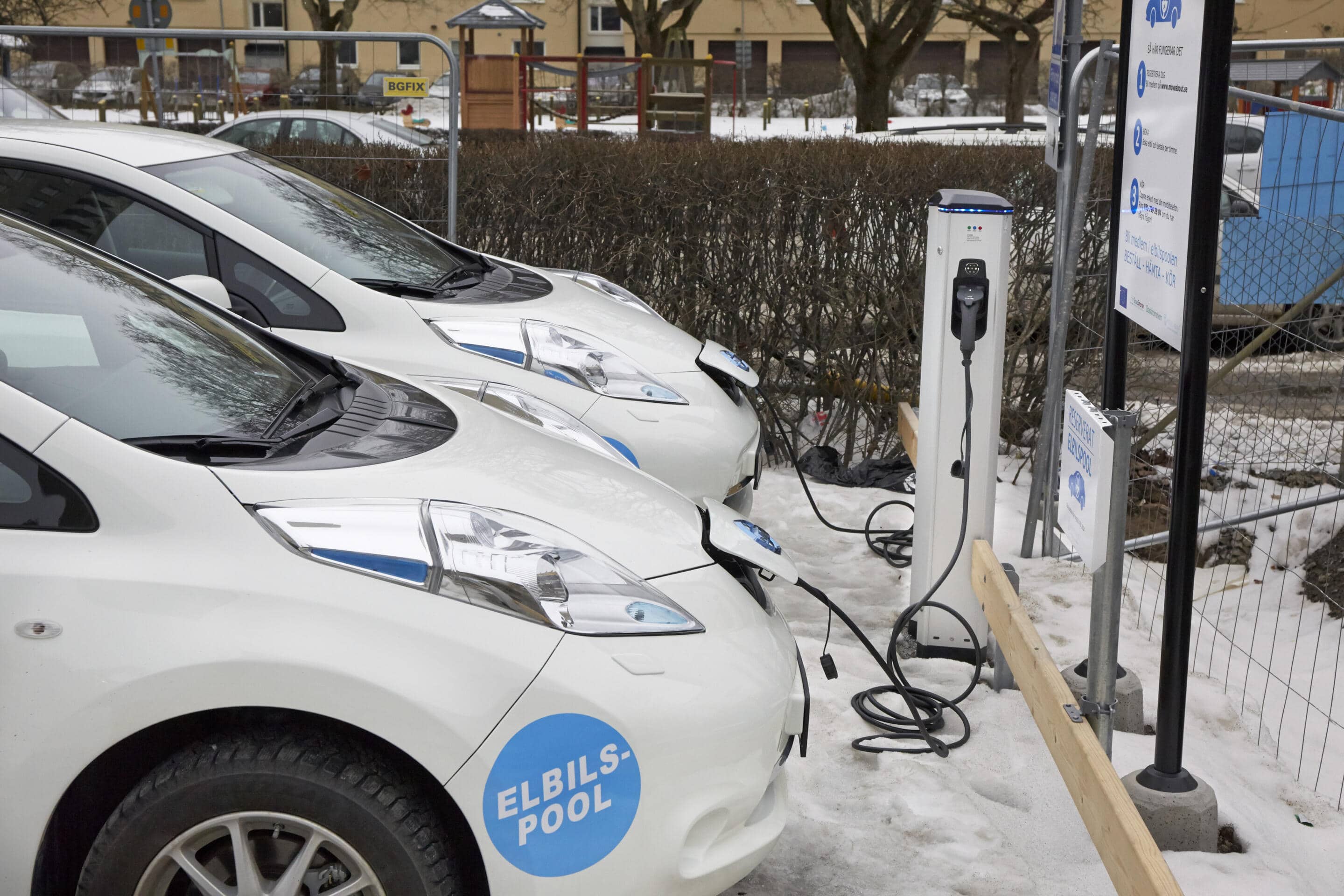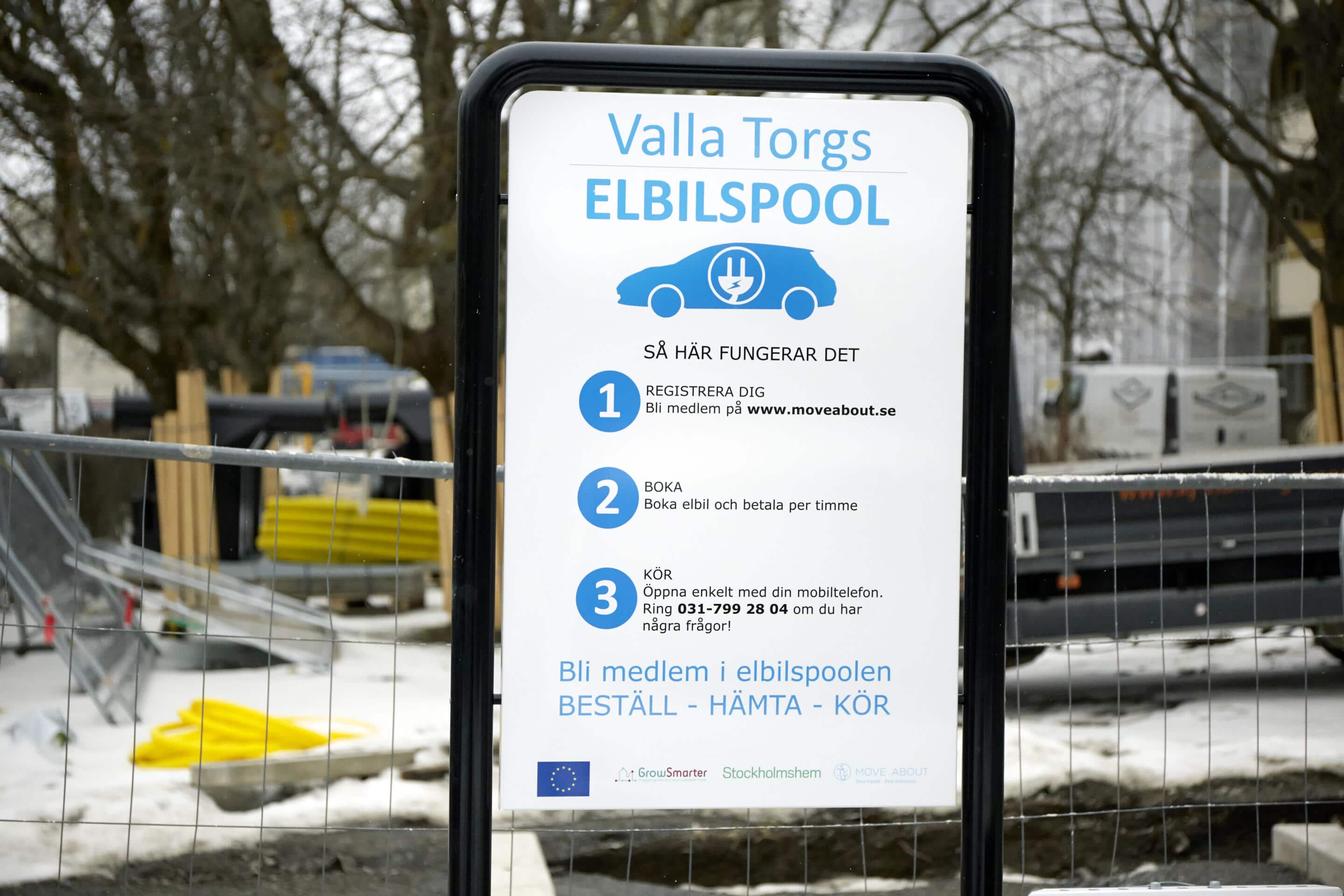How to grow smarter
Stockholm uses shared mobility to re-imagine shared space
Sweden’s capital is using innovative new mobility schemes to reclaim space swallowed up by parking to create more liveable housing developments and leaving its citizens with more disposable income in their pockets. Esben Pejstrup, Paul Fenton and Olle Krönby take up the story
Parking space provision and the high associated costs are coming under increasing scrutiny. Some costs are clear, particularly in urban areas where parking takes up scarce space, which could be used for other purposes.
In Sweden, developers are required to provide ‘adequate’ parking spaces per apartment when building new housing – known as the P-requirement. While a specific P-requirement has never been set in stone, depending on closeness to the city, access to services and public transportation connections the standard is between 0.3 and 0.6 parking spaces per apartment.
Stockholm is trying to change this.
In 2015, the Swedish capital began its leadership of the European project GrowSmarter funded by Horizon 2020’s Smart Cities and Communities ‘Lighthouse’ Programme. The idea behind the project was to respond to citizens’ needs, to reduce their environmental footprint and to provide other cities with valuable insights on smart solutions and to bring these to the market.
In the same year, in line with its vision to become fossil fuel-free by 2040, the city introduced a new policy tool, the so-called Green Parking Index, to enhance mobility in the city and free up space traditionally taken up by a ubiquitous item in any city: parking spaces. The Index is designed to reduce the need for parking spaces by rewarding developers who offer alternative forms of transport to residents when constructing new residential properties.
Green Parking Index
Providing alternative mobility services can reduce the required parking provision by 10-25 percent
10 percent discount if the following is provided:
- Information package.
- Quality easily accessible bicycle parking
- Access to car sharing.
15 percent discount if the following is provided (in addition to the above):
- Bicycle sharing.
- Free trial access to public transport.
25 percent discount if the following is provided (in addition to all the above):
- Service boxes (some with cooling facilities) for the storage of home deliveries.
Working with new policy
Stockholmshem, the largest housing company in the city with more than 28,000 apartments, wanted to test ways in which to lower the P-requirement as part of their participation in GrowSmarter. For Stockholmshem, a municipally-owned company, there were numerous reasons to do so. Besides the opportunity to save money on parking spaces, the company recognized a chance to lower CO2 emissions, increase the amount of space they could use for other purposes such as ‘green areas’ or new housing, reduce traffic in the neighbourhood and realise social benefits by providing car-sharing for residents in their buildings.
The idea behind GrowSmarter was to respond to citizen's needs, to reduce their environmental footprint and to provide other cities with valuable insights on smart solutions and to bring these to the market
In the neighbourhood Valla Torg, Stockholmshem was renovating existing residential buildings as part of GrowSmarter. Stockholmshem provided residents of these buildings with access to a cargo and e-bike pool and added a car-sharing pool with two electric cars in cooperation with the e-mobility company MoveAbout, which operates car-sharing stations across Sweden and Norway. Introduced in 2018, it was – and is – possible for anyone to use the cars, but all tenants in the buildings included in the GrowSmarter project receive free membership and only pay a fee while using the service. By testing the principles of the Green Parking Index in an existing setting, Stockholmshem has gained valuable insights into how to deliver mobility services and reduce P-requirements for new or planned developments.
How did it work in practice?
Since installation in 2018, the electric cars have been widely used by the residents of Valla Torg. Statistics from the GrowSmarter project reveal that the two electric vehicles travelled a distance of more than 43,000km between February 2018 to August 2019 with 35 local residents signing up for and using the car-sharing pool in addition to more than 200 members from elsewhere in Stockholm.
The electric cars were generally in high demand and, during weekends, it was often the case that the service was fully booked. If the distance travelled by the electric cars would have otherwise been done in privately owned mid-size petrol cars, the CO2 savings amount to 8.3 tonnes of CO2.

Valla torg Carpool - March 2018
However, the success of the solution is about more than just the number of users and CO2 reductions, it is about encouraging behavioural change and having citizens ask themselves: Is it really necessary to own a private car? Can Stockholmshem plan for new housing developments with fewer parking spaces when developing property in the future? The answers appear to be yes. In a survey recently carried out by GrowSmarter one in six residents who responded had less interest in owning a car since the electric car pool and an adjacent bike pool were established.
More disposable income in the pockets of the residents
Car-pooling also presents another convincing argument for residents. The price of owning a mid-size car in Stockholm, according to ‘Bilsvar’, a service provided by the Swedish Consumer Agency and the National Energy Authority, is approximately 375 euros a month, excluding parking. In comparison, membership in the car-sharing pool costs around €11 euros with each hour costing an additional €7.40.
Thus, it would take 49 hours of driving per month before owning a private car is the most affordable solution. Creating a car-sharing pool just outside the door of the residents in Valla Torg was therefore also about providing economic benefits for the tenants in Stockholmshem’s buildings by making it unnecessary for them to own and cover the full cost of a private car.
Following the positive uptake of the car-pools in Valla Torg, Stockholmshem is already planning to add mobility measures, including e-car pools, to planned new developments
A future free of parking
Following the positive uptake of the car-pools in Valla Torg, Stockholmshem is already planning to add mobility measures, including e-car pools, to planned new developments. With 28,000 apartments alone owned by Stockholmshem, the potential is certainly there to upscale this even further by introducing similar solutions to existing housing stock.
One issue that will need to be addressed in Valla Torg is how make this approach cost neutral, when initial funds through GrowSmarter (which covered membership fees for the car-pool) cease at the end of 2019. One of a number of possible business models includes Stockholmshem covering the fixed costs of the car sharing company in exchange for some of the income generated.
 When it comes to applying the Green Parking Index to new developments, rather than in existing ones like Valla Torg, the business case has been proven strong by the attractiveness of the car-pool in GrowSmarter. The challenges remaining with new developments are determining which mobility services or other factors are best suited to achieve the discount on parking places and how to ensure mobility services over the long term.
When it comes to applying the Green Parking Index to new developments, rather than in existing ones like Valla Torg, the business case has been proven strong by the attractiveness of the car-pool in GrowSmarter. The challenges remaining with new developments are determining which mobility services or other factors are best suited to achieve the discount on parking places and how to ensure mobility services over the long term.
Freeing up car parking spaces through shared transport schemes has the potential to considerably increase the attractiveness of cities and to reduce their vulnerability to the consequences of climate change. Stockholmshem has successfully shown that this is a viable and indeed attractive option. Making sure through policies like the Green Parking Index that other housing companies, both public and private, model this approach of choosing mobility over parking will be key to achieving a dramatic change in the urban environment.
GrowSmarter
GrowSmarter is a five-year collaboration between eight European cities and industrial partners showcasing smart solutions for sustainable urbanism. Stockholm is one of the project’s three demonstration cities alongside Cologne and Barcelona with 12 smart solutions implemented around the city.
The focus of GrowSmarter is to develop low energy districts, integrate both active and passive infrastructure networks and improve sustainable urban mobility.
The project finishes in December 2019 after five years.
More information: www.grow-smarter.eu, or Twitter.com/EUGrowSmarter
FYI
Esben Pejstrup is Communications Officer at ICLEI Europe
Paul Fenton is Project Manager, CIVITAS ECCENTRIC and mobility Work Package Leader for GrowSmarter at the City of Stockholm
Olle Krönby is an Analyst at the CEO’s Unit of Stockholmshem
esben.pejstrup@iclei.orag
paul.fenton@stockholm.se
olle.kronby@stockholmshem.se
